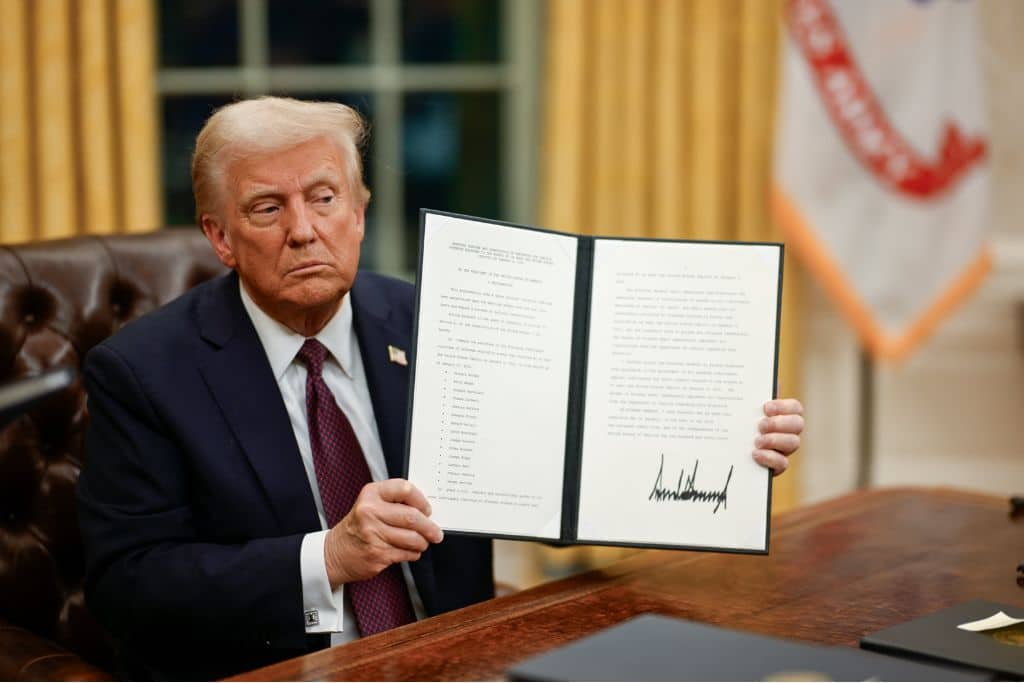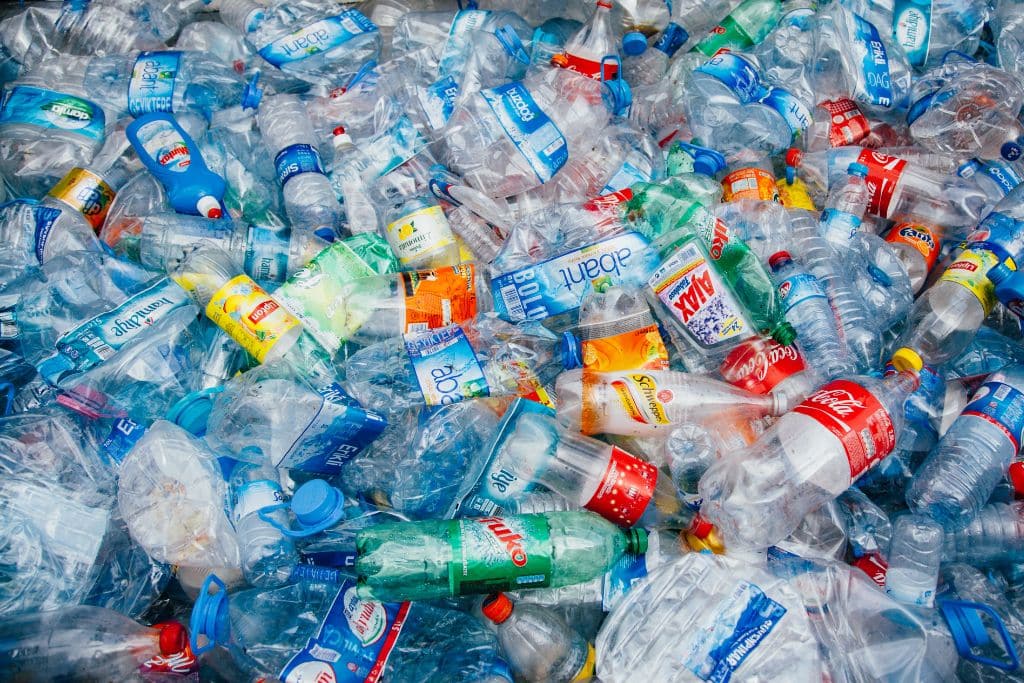As negotiations on the Global Plastic Treaty are set to resume this August in Geneva, Switzerland, countries remain deeply divided over the objectives and policies that should be included in the agreement. Last November’s talks in Busan, South Korea highlighted deep divisions between countries advocating for strict measures and those favouring voluntary measures.
—
The Global Plastic Pollution Treaty is a United Nations-led international legal agreement aimed at ending plastic pollution. 175 nations have joined the negotiations for a new treaty, which started in 2022, with other major stakeholders such as large corporate alliances maintaining an immense influence.
The fifth – and what was meant to be the last – Intergovernmental Negotiation Meeting (INC-5) in Busan, South Korea, was largely unsuccessful. Major producers like the United States and Saudi Arabia remain cautious to avoid an onerous treaty, while a high ambition coalition, led by countries like Australia and Norway, pushed for stricter global control of plastic production
Major Coalitions in the Global Plastic Treaty Negotiations
1. United States
The US supports the least ambitious option with respect to the objectives of the plastic pollution treaty.
While sharing some of the positions held by countries including China, Russia and Saudi Arabia, the US – unlike these other nations – has indicated a willingness to reduce the “global production…of virgin plastics.”
The country has also pushed for requiring minimum standards for design and performance on plastic products, including certification and labelling.
However, those positions mostly reflected the sentiment of the Biden Administration in 2024. Since Donald Trump took office in January, the US has positioned itself as generally more skeptical of environmental policy and international collaboration, arguing that climate-friendly policies pose unfair and improper restrictions on the US economy and are not in line with the new administration’s priorities.

In a highly symbolic move, Trump recently signed an executive order that reverses a Biden administration policy to get single-use plastics, including straws, plastic cutlery and packaging, out of federal food service operations by 2035 in a bid to tackle the growing threat of plastic pollution.
“These things [paper straws] don’t work, I’ve had them many times and on occasion they break, they explode,” Trump told reporters at the White House on Monday as he signed the order. “It’s a ridiculous situation so we’re going back to plastics.”
The US plastic industry produces 232 million tons of carbon dioxide equivalent gas emissions (CO2e) annually, equal to 116 coal-fired power plants.
2. China, Russia, Iran, Saudi Arabia
Nations including China and petrostates Russia, Iran and Saudi Arabia, reject an overly ambitious vision for the treaty, instead favoring a much less ambitious treaty which they described as “realistic”. While supporting proper management of plastic waste, these developing nations oppose limiting plastic production.
Many oil- and gas-producing nations have historically resisted strict environmental regulations, particularly those that might limit plastic production, which is closely tied to the petrochemical industry.
Some distinguishing positions adopted by the group include:
- Opposing trade provisions within the plastic pollution treaty that prohibit or restrict certain types of trade with certain countries (e.g. non-members to the treaty) to curb plastic pollution.
- Emphasizing the “sovereign right of states” to exploit their own resources and stresses that all national action plans should be “nationally determined.”
- Regarding the instrument as a cooperative mechanism rather than top-down determination of countries’ commitments to managing plastic pollution.
- Ultimately preferring a bottom-up approach and emphasizes the principle of common but differentiated responsibility. This principle acknowledges that, while all nations have shared obligation to address environmental degradation, not all states have equal responsibility with regard to environmental protection.
These nations also intend for the instrument to support developing countries both financially and through technology transfer. However, they only regard the technology transfer mechanism as a pathway of “phas[ing] down plastic pollution,” and not reducing plastic production. Many of the nations that are part of this coalition are among the world’s top 10 oil producers, and thus not inclined to enter into treaties that could significantly restrict their domestic oil and plastic production, ultimately affecting their economies.
| Country | Million barrels per day | Share of world total |
| United States | 21.91 | 22% |
| Saudi Arabia | 11.13 | 11% |
| Russia | 10.75 | 11% |
| Canada | 5.76 | 6% |
| China | 5.26 | 5% |
| Iraq | 4.42 | 4% |
| Brazil | 4.28 | 4% |
| United Arab Emirates | 4.16 | 4% |
| Iran | 3.99 | 4% |
| Kuwait | 2.91 | 3% |
3. High Ambition Coalition
The overarching goal for the high ambition coalition, which includes the European Union, Australia, Canada, South Korea, and the United Arab Emirates (UAE), is to push for an ambitious treaty that ends plastic pollution by 2040. As opposed to the previous groups, these nations want to develop binding obligations to “restrain plastic consumption and production.”
The coalition promotes outcomes and principles including:
- A precautionary approach involving greater regulation and, where the scientific data is unclear, deference to a course of action least harmful to the environment.
- A waste hierarchy principle that prioritizes avoiding the production of plastic waste over processing plastic waste.
- Eliminating problematic plastics, substances and additives, which it defines as “plastic packaging items, components, or materials where consumption could be avoided through elimination, reuse or replacement and items that…are detrimental to the recycling or composting system due to their format, composition, or size.”
- Developing global sustainability criteria and standards for plastics.
The coalition is aligned with the likes of China and Russia on providing technical and financial assistance for lesser developed nations but distinguishes itself for the more ambitious end goal of reducing global plastic production.
Members of this coalition, including Australia, have already implemented single-use plastic bans, indicating a commitment to curbing plastic production and usage.
4. India
India supports a nationally determined approach that considers the unique circumstances and compliance capabilities of each country. As the instrument is legally binding, India considers it vital that each nation determines its own obligations based on their historical and present contributions to plastic pollution. This is another reference to the common but differentiated responsibilities doctrine.
India has provided a number of key positions, including:
- Opposing caps on the production of any products, chemicals or primary polymers.
- Opposing a plastic pollution fee on production of primary plastic polymers.
- Support for mandatory financial resources and technology transfers from developed countries to developing countries to be enforced via “compliance of substantive obligations.” In other words, India wants legally binding provisions mandating technology transfer and financial support as opposed to mere mandatory reporting or other procedural obligations.
5. Brazil and GRULAC
Although not part of the higher ambition coalition, Brazil previously claimed to support an “ambitious instrument”. The South American country, alongside the Group of Latin America and the Caribbean Countries (GRULAC), is open to implementing production restrictions measures if appropriate phase-out and just transition schemes are implemented. The group is in support of an integrated approach including financing, capacity building, technical assistance and technological cooperation.
In Busan, GRULAC also submitted that the treaty could “benefit from a network of technical centres that could provide regulatory, technical and technological cooperation at national, regional and global levels.”

What Do the Major Companies Want?
Around 72% of the world’s largest companies claim that they want to “reduce” plastic waste. But what does that actually mean? What is the nature of their commitment, if any?
There are two main corporate alliances with two distinct approaches to this treaty.
International Council of Chemical Associations (ICCA)
The ICCA wants to reduce plastic waste and reduce its impacts downstream, without curbing production.
The group is opposed to trade restriction provisions in the treaty. An example of a trade restriction provision is article 4 of the Montreal Protocol on Substances that Deplete the Ozone Layer, which prohibits the trade of certain restricted substances with parties that have not signed up to the protocol. Effectively, the trade restriction is utilized to prevent further pollution.
The ICCA includes major petro-chemical companies including ExxonMobil, Dow, Shell, TotalEnergies and Chevron Phillips.
Business Coalition For a Global Plastics Treaty
The second major corporate coalition has a more progressive opinion on the global plastic pollution treaty that more closely aligns with the high ambition coalition.
The coalition is composed of over 250 organisations, including major companies like IKEA, PepsiCo, Walmart and the World Wildlife Fund (WWF).
There are three key global outcomes that this coalition seeks after:
- Reduction of plastic production and use through a circular economy approach, which involves eliminating plastic materials, components or additives that can easily leak into nature
- Circulation of all plastic items that cannot be eliminated, keeping them in the economy at their highest value. This involves designing products and systems that enable all plastics to be reused, recycled or composted in practice and at scale
- Preventing and remediating micro and macro-plastic leakage into the environment, including preventing the release of microplastics into the environment from, for example, abrasion, fibre shedding or pellet loss.
What the World Ultimately Needs
Addressing the entire lifecycle of plastics, from production to disposal, can significantly reduce plastic leakage into the environment by 96% by 2040, according to the Organisation for Economic Co-operation and Development (OECD).
With plastic pollution expected to increase by 70% between 2020 and 2040, it is clear that a successful treaty is one that is ambitious, substantive and burdensome for the status quo. Ultimately, the outcome of the negotiations will leave a mark on the planet for generations to come.
More on the topic: Why the World Urgently Needs a Global Plastic Treaty
💡How can I contribute to a more sustainable planet?
- 🗳️ Vote for climate action: Exercise your democratic rights by supporting candidates and policies that prioritize climate change mitigation and environmental protection. Stay informed with Earth.Org’s election coverage.
- 👣 Reduce your carbon footprint: Make conscious choices to reduce your carbon footprint. Opt for renewable energy sources, conserve energy at home, use public transportation or carpool, and embrace sustainable practices like recycling and composting.
- 💰 Support environmental organizations: Join forces with organizations like Earth.Org and its NGO partners, dedicated to educating the public on environmental issues and solutions, supporting conservation efforts, holding those responsible accountable, and advocating for effective environmental solutions. Your support can amplify their efforts and drive positive change.
- 🌱 Embrace sustainable habits: Make sustainable choices in your everyday life. Reduce single-use plastics, choose eco-friendly products, prioritize a plant-based diet and reduce meat consumption, and opt for sustainable fashion and transportation. Small changes can have a big impact.
- 💬 Be vocal, engage and educate others: Spread awareness about the climate crisis and the importance of environmental stewardship. Engage in conversations, share information, and inspire others to take action. Together, we can create a global movement for a sustainable future.
- 🪧 Stand with climate activists: Show your support for activists on the frontlines of climate action. Attend peaceful protests, rallies, and marches, or join online campaigns to raise awareness and demand policy changes. By amplifying their voices, you contribute to building a stronger movement for climate justice and a sustainable future.
For more actionable steps, visit our ‘What Can I do?‘ page.
This story is funded by readers like you
Our non-profit newsroom provides climate coverage free of charge and advertising. Your one-off or monthly donations play a crucial role in supporting our operations, expanding our reach, and maintaining our editorial independence.
About EO | Mission Statement | Impact & Reach | Write for us








